CULTURAL ANALYSIS
CULTURAL ANALYSIS
Gish Jen is a novelist, short story writer, and literary critic. Her books include Who’s Irish? (1999), Typical American (1991), Mona in the Promised Land (1997), The Love Wife (2004), and Tiger Writing: Art, Culture, and the Independent Self (2013). She also contributes to the New Yorker, The Atlantic, the New York Times, Ploughshares, and the New Republic. This essay first appeared in A New Literary History of America (2009), edited by Greil Marcus and Werner Sollors.
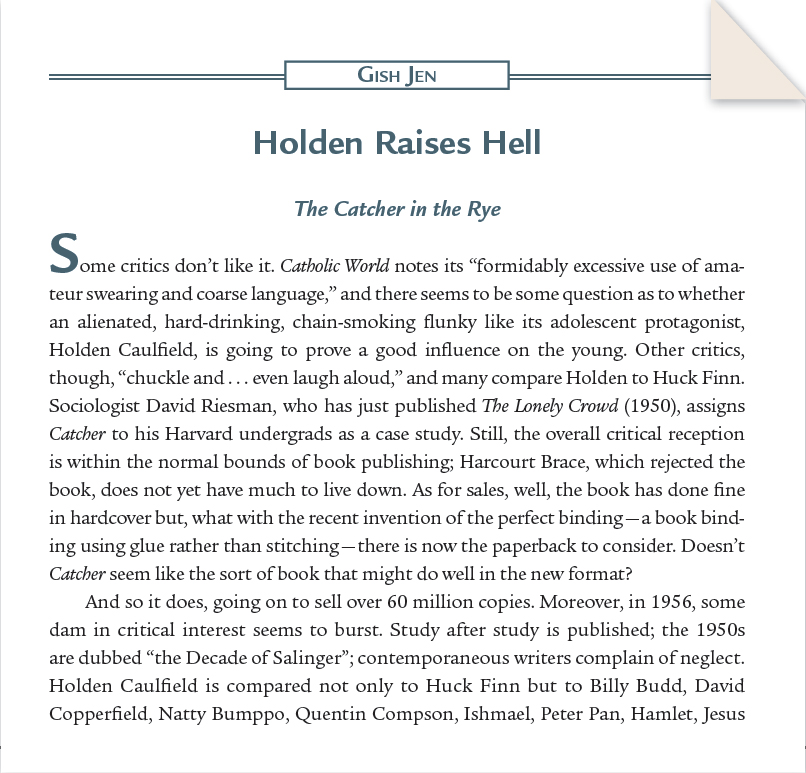
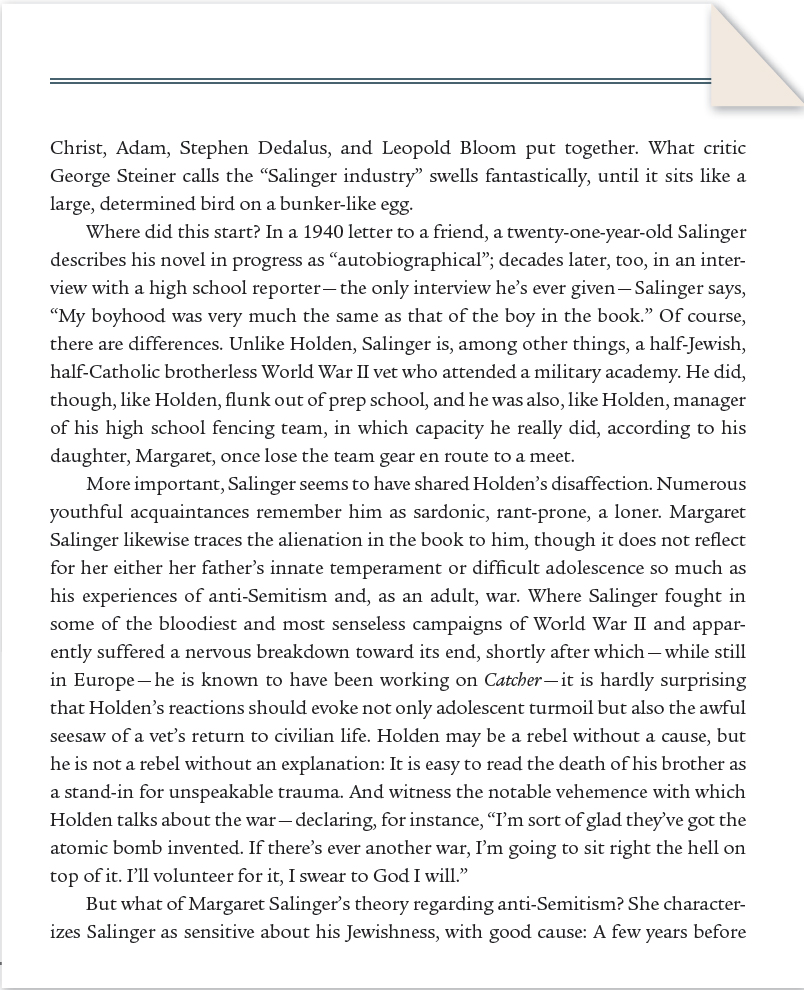
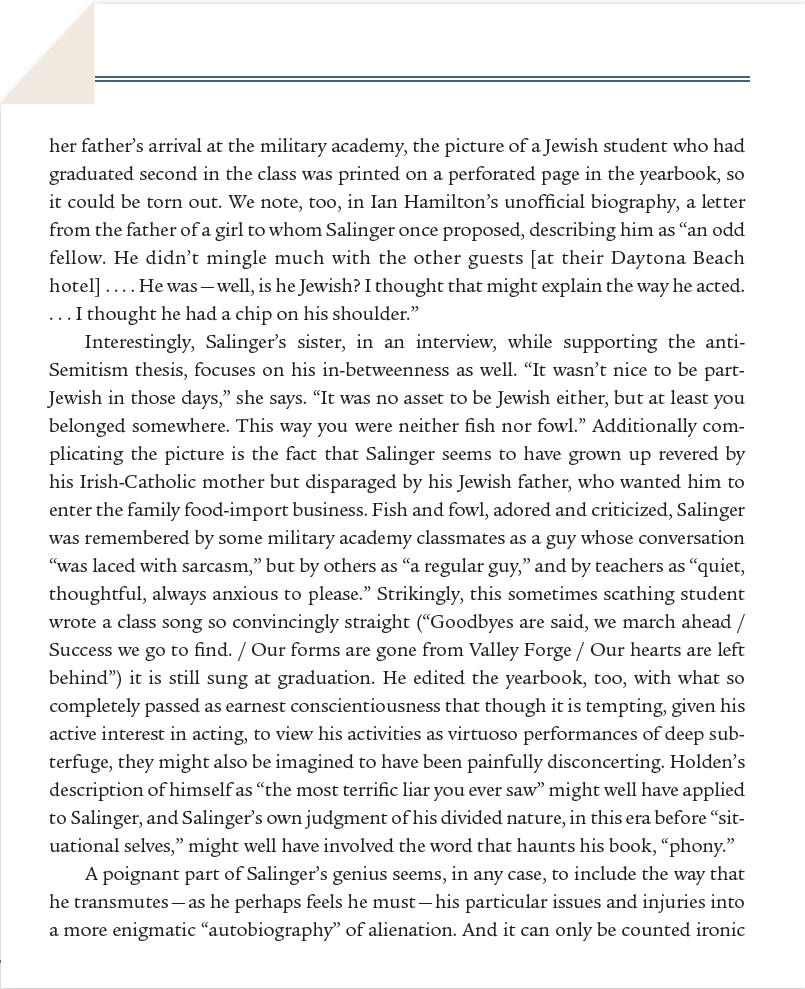
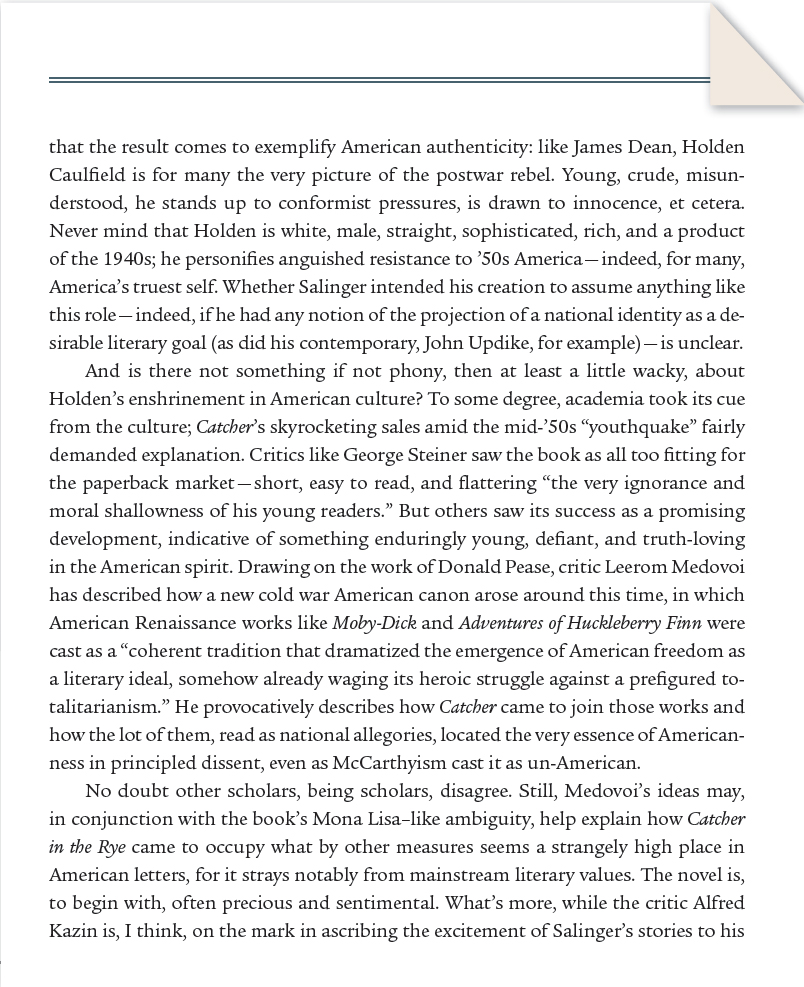
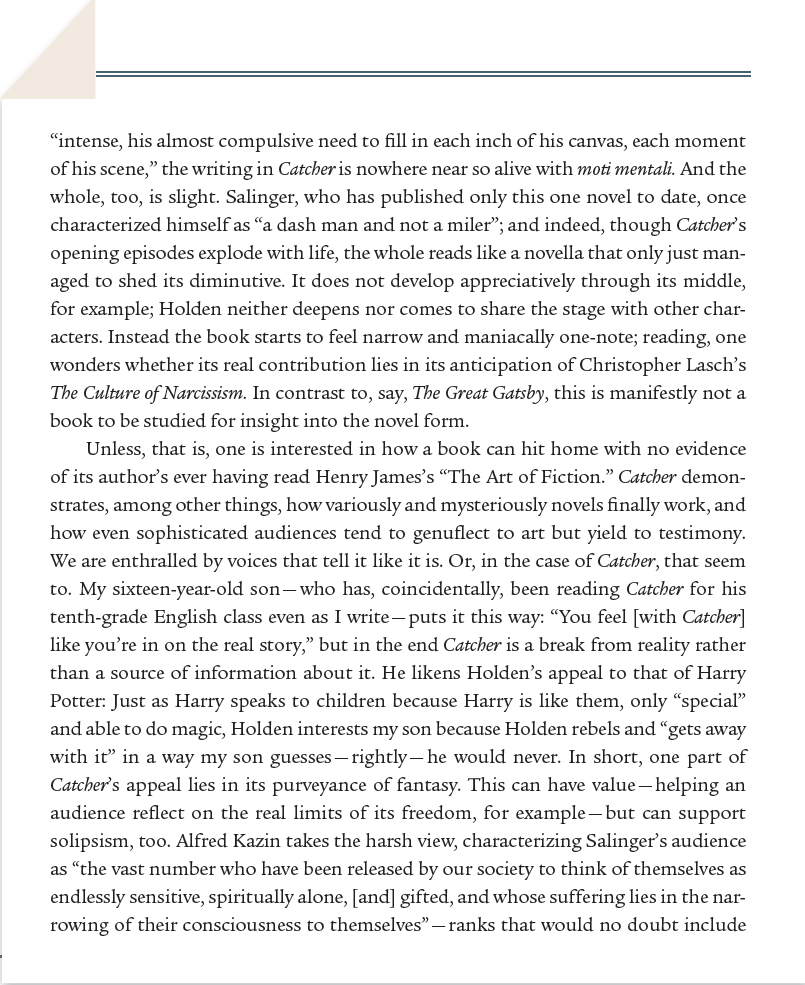
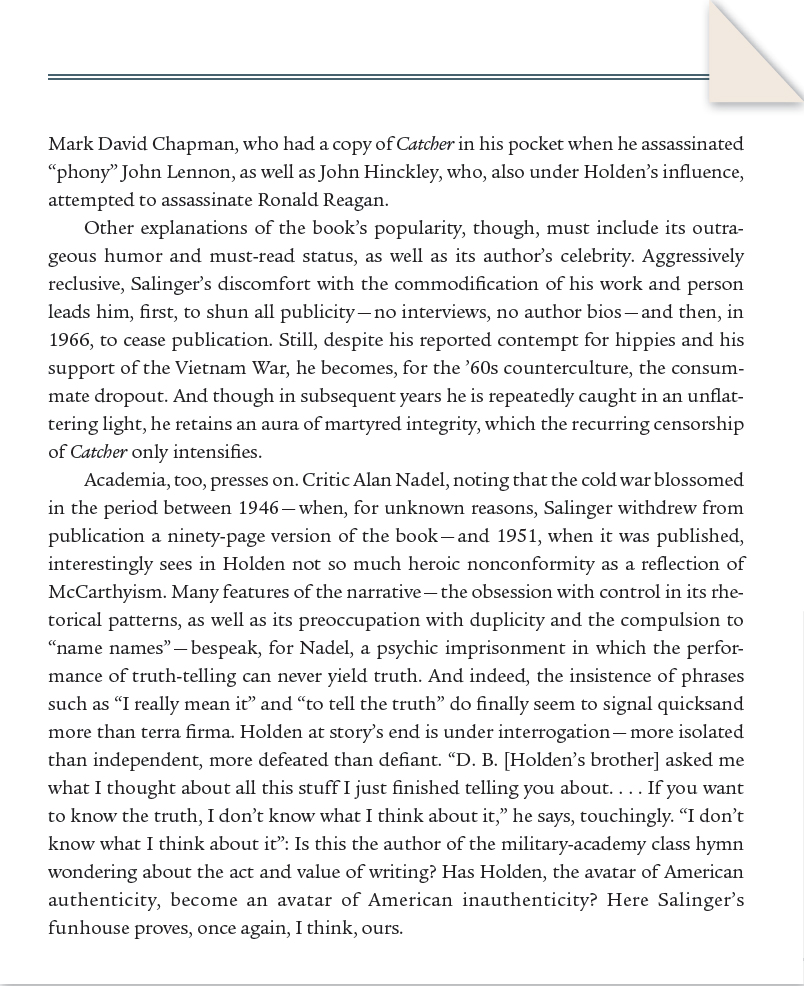
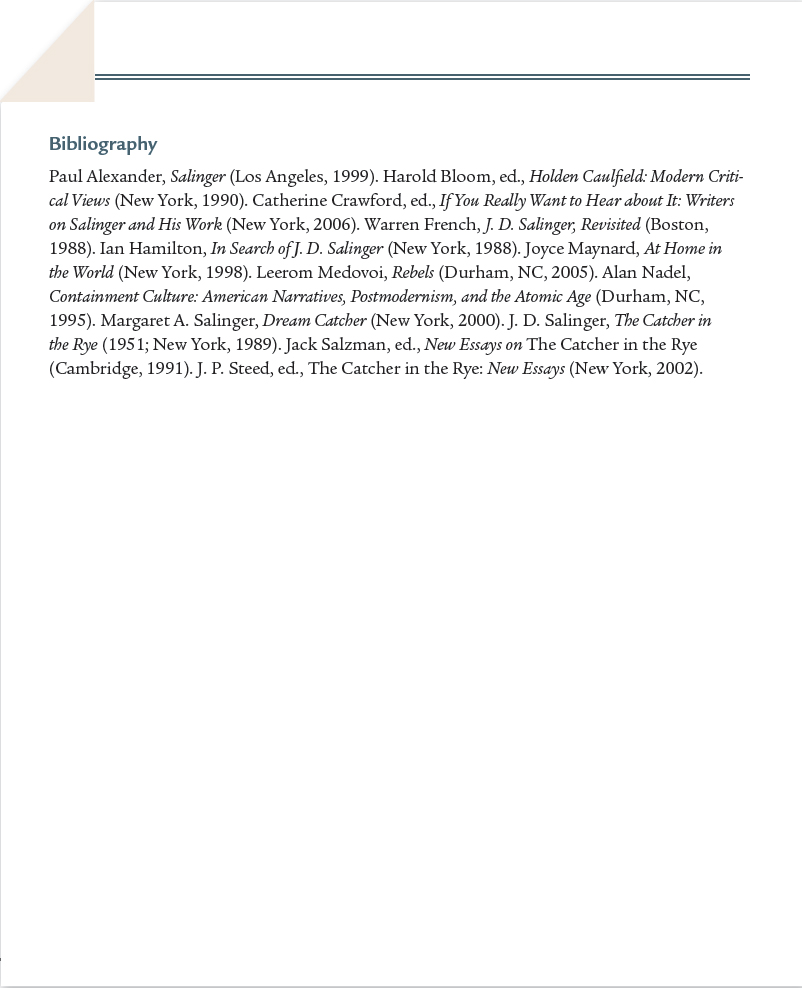
Reading the Genre
Question
1. The Catcher in the Rye has been widely read and widely discussed. How does Jen use other critics’ assertions about the book to establish an overview and to support her own claims? (See “Draw on previous research”.)
Question
2. What strategies does Jen use to integrate material from her research? What do these other voices add to her analysis? (See “Clearly identify the author and works you are analyzing”; “Follow the conventions of literary analysis”; and Chapter 44, “Incorporating Sources into Your Work”.)
Question
3. Jen cites several flaws in J. D. Salinger’s novel. What does she see as its weaknesses? How does she explain the book’s enduring popularity with readers and scholars, even in spite of these problems?
Question
4. Can you think of a fictional character who defines your generation the way Jen believes Holden Caulfield defined his? What makes this character representative of you and your peers?
Question
5. WRITING: How would Catcher in the Rye be different if its main character used Twitter, Facebook, a blog, or Skype instead of a notebook to share his thoughts? (See Chapter 48, “Understanding Digital Media”.) Write a short analysis of the ways technology has changed how teenagers communicate — and how those changes diminish or enhance feelings of isolation.
Question
6. MULTIMODALITY—